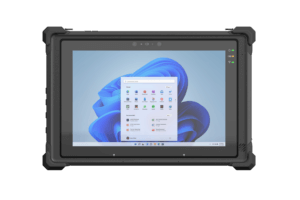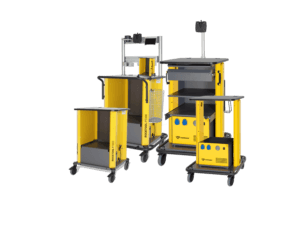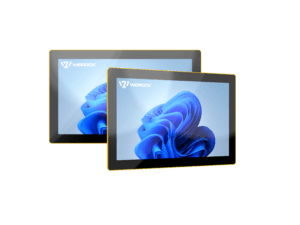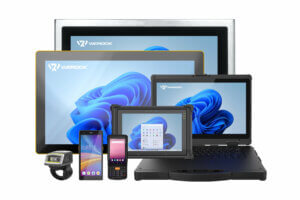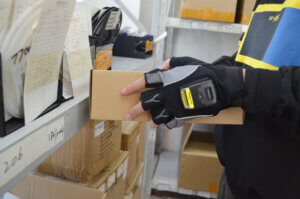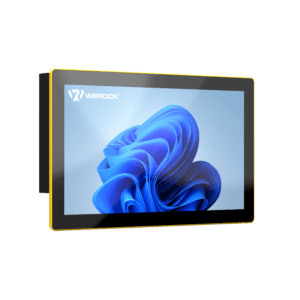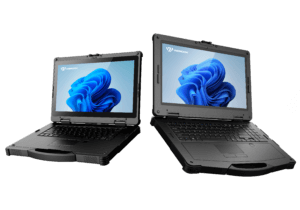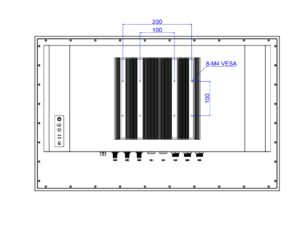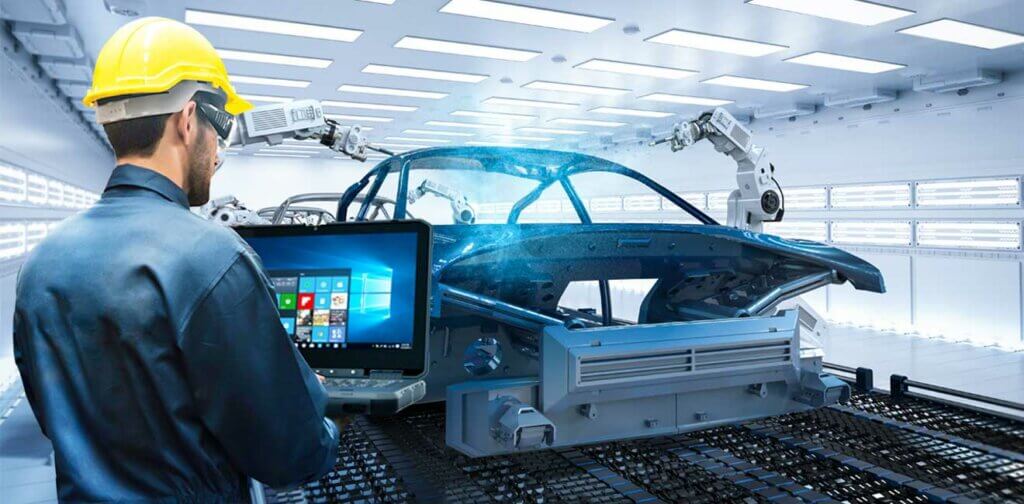The integration of existing plants, intelligent maintenance concepts and even the networking of complete factories ensures competitiveness and sets building blocks for the future. For example, the automotive industry is facing several problems right now: The need for digitalization, the complete conversion of vehicle fleets to alternative drives, and supply bottlenecks for electronic components. Not only the global corona pandemic, but also stricter safety and environmental regulations have led to bottlenecks for automotive manufacturers. In addition, changes in customer behavior and technological developments are forcing automotive industry players to reshape the landscape of the automotive industry.
Back in 2016, Elon Musik (CEO of Tesla) spoke at a shareholder meeting about the importance of building a manufacturing system to accelerate the world’s shift to sustainable energy, faster vehicle production and lower costs:
“We’ve realized that the real problem, the real difficulty, and the biggest potential is building the machine that makes the machine. In other words, it’s about building the factory. I really look at the factory like a product.” Elon Musk, CEO of Tesla Motors.
Disruptive transformation
Digital transformation in automotive manufacturing is not new. In fact, the automotive industry has been one of the most aggressive industries in replacing manual labor with automation. There are four key trends that are transforming the automotive industry: connectivity, automation, car sharing and electrification. These trends will directly impact the way automakers operate and survive in a highly competitive marketplace, necessitating digital transformation.
With digitalization, connections across the dealership landscape are changing. OEMs, dealers and customers are dynamically redefining the way they interact with each other. Consumers’ growing demands for a seamless experience across digital and physical touchpoints are forcing OEMs and retailers to rethink how they engage with their customers before, during and after the purchase. This also means digitizing the paper-intensive purchasing process.
Data on the move, from factory to store
Continuous data collection and analysis on the factory floor opens up new opportunities for predictive maintenance of vehicle diagnostic systems. Smart components and widespread connectivity enable the vehicle and some components to proactively signal when they need to be serviced or replaced, dramatically reducing the frequency and severity of recalls.
The advent of low-cost sensors has reduced the cost of predictive maintenance, enabling the next generation of maintenance. Gradually, maintenance is no longer just a mechanical tune-up or parts replacement, but also a software upgrade to improve the performance of the entire engine and individual mechanical systems, which helps maintain parts and optimal performance.
With all of these moving parts working in harmony, it’s not difficult to take the data collected by Industry 4.0 beyond the factory floor and into e-commerce. Data collected by digital market platforms can tell manufacturers which products are preferred and which locations are most in demand – allowing manufacturing to adapt its operations to meet needs and create personalized services.
inddd
Although leading Industrie 4.0 technologies such as industrial robotics, Industrial Internet of Things (IIoT), cloud computing and machine-to-machine (M2M) communication technologies have only recently matured, competition and wider adoption have brought down the cost of digitization. This means that Industry 4.0 digitization is becoming more accessible to a broader group of users, delivering more benefits to more people and businesses.
Studies by Capgemini Research Institute predict that by the end of 2022, 24% of automakers’ plants will be smart factories, and 49% of automakers have already invested more than €219 million in smart factories. With a digital technology component in every aspect of an automaker’s operations, the challenge is to move quickly, make changes now, and take ownership of the customer experience before technological disruptors take it away from them.
WEROCK offers hardware to meet the upcoming digitalization projects, from frugal clients for cloud applications to powerful edge computing solutions for production, logistics, maintenance and configuration work. WEROCK’s rugged design of rugged tablets, notebooks and handheld PDAs withstands harsh industrial conditions. Extreme temperatures, shock, drops and vibration are no problem for these devices, which meet military standards.


